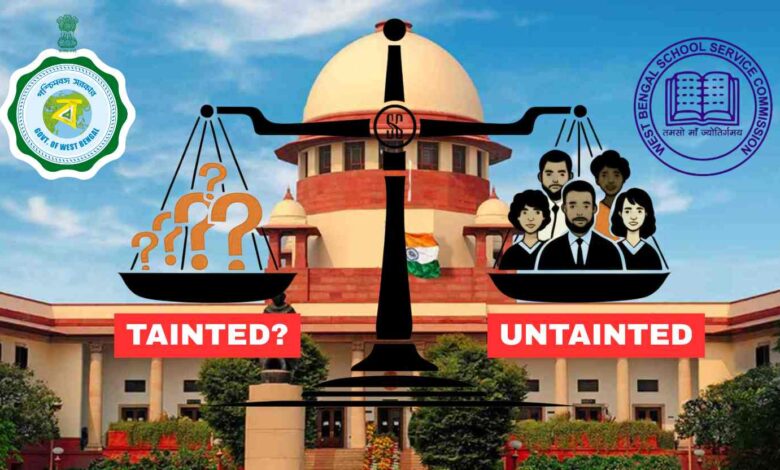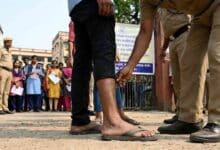Supreme Court Rejects Plea of Cancer Patient in SSC Scam Case, Citing Tainted Process

SSC Scam Case: A significant new turn has emerged in the West Bengal School Service Commission (SSC) 2016 recruitment scam case. The Supreme Court of India has dismissed a petition challenging the cancellation of 26,000 jobs. Despite an appeal to reinstate the job of a cancer-stricken applicant on humanitarian grounds, the justices rejected the plea, labeling the entire recruitment process as “corrupted.” This verdict once again casts a shadow of uncertainty over the fate of thousands of job aspirants in the state.
Case Background and Key Hearing Points
The Calcutta High Court had previously cancelled the jobs of nearly 26,000 candidates due to widespread corruption allegations in the 2016 SSC recruitment process. Several appeals were filed in the Supreme Court challenging that verdict. Today’s case involved an applicant named Soumi Biswas, who is currently battling cancer. Her lawyer, Amit Sharma, made a fervent appeal to the court to reinstate his client’s job on humanitarian grounds.
However, the bench led by Justice Sanjay Kumar refused to accept this plea. During the hearing, the justices made it clear that while they have complete sympathy for the applicant, no decision can be made that goes above the law. The court stated:
- Entire Process was Corrupted: According to the justices, since the entire recruitment process was flawed and corrupt, a special directive cannot be issued for a single individual. When the whole selection process has been nullified, it is not possible to protect any one person.
- Exemptions for the Differently-Abled: The court recalled that exemptions were only granted to differently-abled or visually impaired candidates, as in the case of Soma Das. However, this rule does not apply to general candidates.
- Opportunity to Re-appear for Exam: The court noted that “untainted” candidates have been given the opportunity to sit for the examination again, with age relaxations where necessary. Therefore, the applicant must also follow the same path.
The Court’s Stern Stance and the Clash of Law and Humanity
During the hearing, the applicant’s lawyer repeatedly mentioned that his client is prepared to sit for the exam even while undergoing chemotherapy, but her physical condition is extremely fragile. He also claimed that Soumi Biswas’s name is not on any “tainted” list and that she was not involved in any financial transactions.
In response, the justices stated that breaking the law is not an option. However, they suggested an alternative path. The court advised that the state government could provide financial assistance to the applicant through a welfare scheme. Citing an example, a justice mentioned that his own driver’s sister, also a cancer patient, received financial aid of ₹40,000 from a central government scheme. Accordingly, the state government was directed to take similar steps.
Ultimately, the Supreme Court completely dismissed the job reinstatement plea, concluding the case with a directive for financial aid from the state government’s relief fund. This verdict makes it clear that the court is unwilling to grant any further opportunities regarding this corrupted recruitment process.

